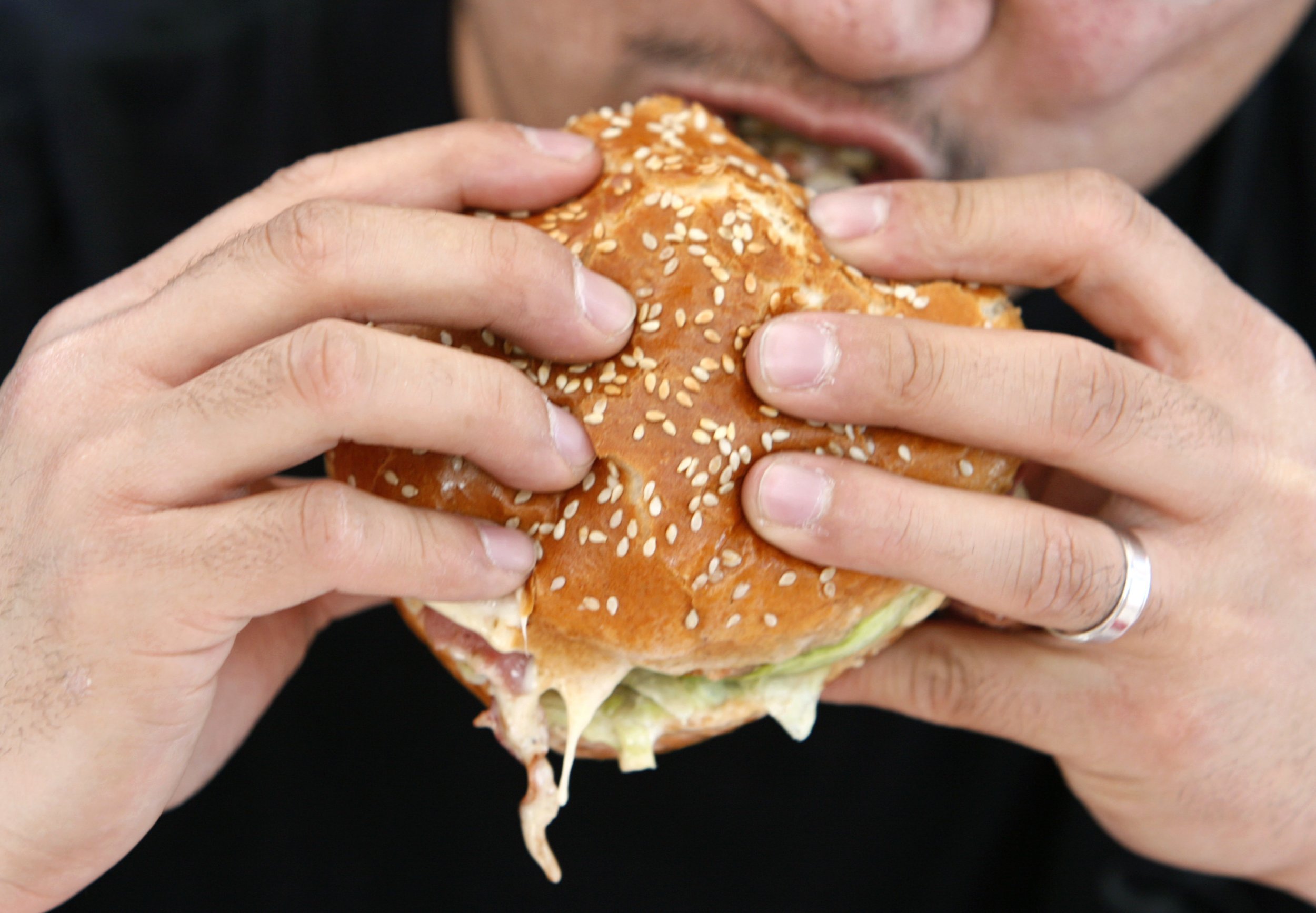
Phthalates are a class of man-made chemicals, and they are in nearly every synthetic product we use on a regular basis. They're used to make plastics more flexible and vinyl more durable, so they're in things like flooring, shower curtains and plastic toys. Plus, they're used as a gelling agent in personal care products, so they're found in shampoos, makeup and lotions, just to name a few. And now it turns out you're probably eating them with your burger and fries too.
New research published Wednesday in the journal Environmental Health Perspectives found that among nearly 9,000 test participants, phthalate levels in their systems were directly related to how much fast food they'd eaten in the last 24 hours. People who ate the most fast food had as much as 40 percent higher levels of the chemical in their bodies than those who ate none.
The scientists behind the study say that this is probably because phthalates are common in food packaging, drink containers, the tubing used to transport dairy and the equipment used to process fast food. Prior evidence already suggested those phthalates can leach into the food itself, but the study, conducted by researchers at the Milken Institute School of Public Health at the George Washington University, further underscores that point.
"Our findings raise concerns because phthalates have been linked to a number of serious health problems in children and adults," Ami Zota, an assistant professor of environmental health and the lead author on the study, said in a statement.
Studies have linked phthalates to asthma, attention deficit hyperactivity disorder, autism and breast cancer, among other disorders. Our bodies do not metabolize phthalates, and they act as endocrine disruptors, messing with the system that regulates our hormones. Early onset of puberty in girls has also been linked to the chemical.
Uncommon Knowledge
Newsweek is committed to challenging conventional wisdom and finding connections in the search for common ground.
Newsweek is committed to challenging conventional wisdom and finding connections in the search for common ground.
About the writer
Zoë is a senior writer at Newsweek. She covers science, the environment, and human health. She has written for a ... Read more
To read how Newsweek uses AI as a newsroom tool, Click here.








